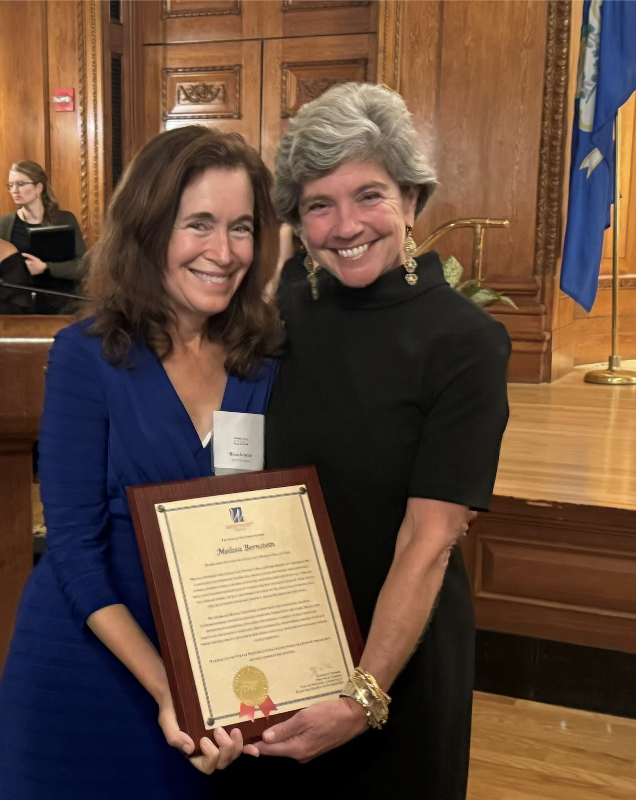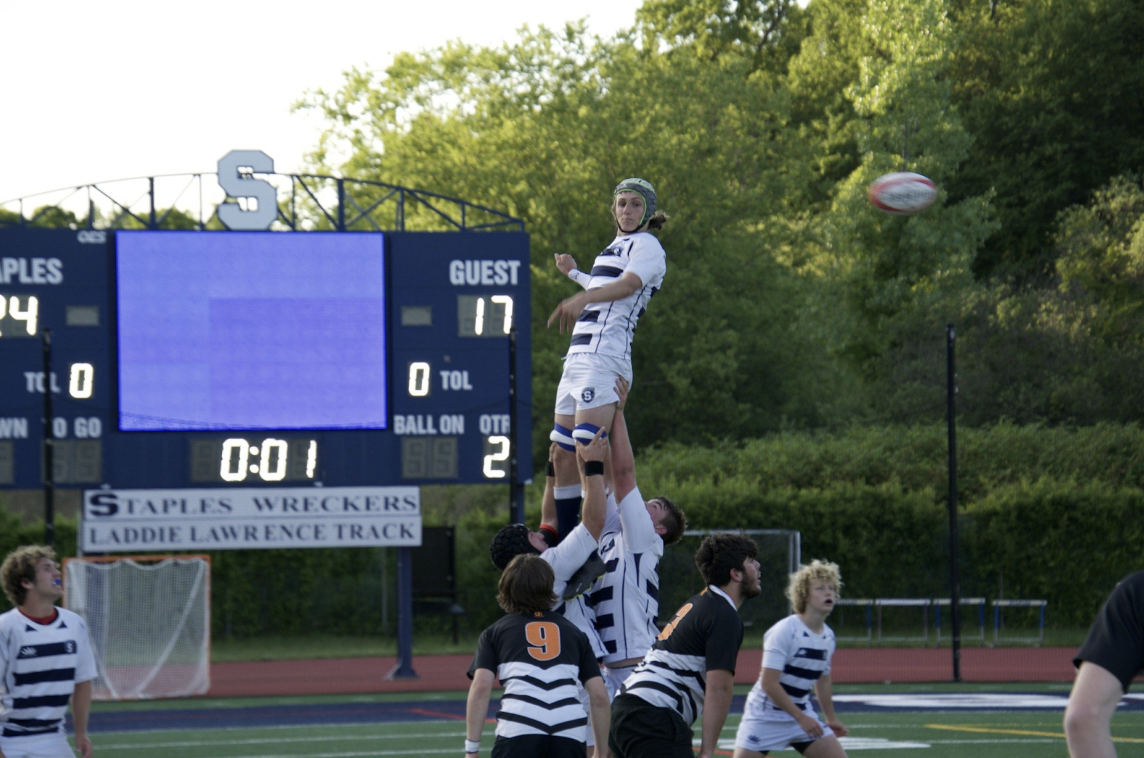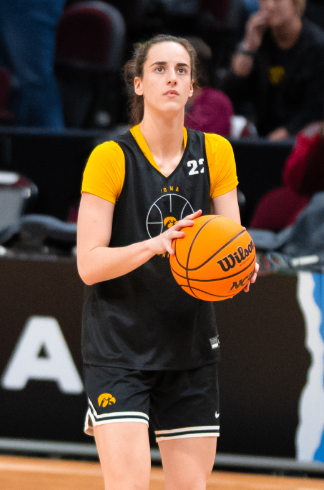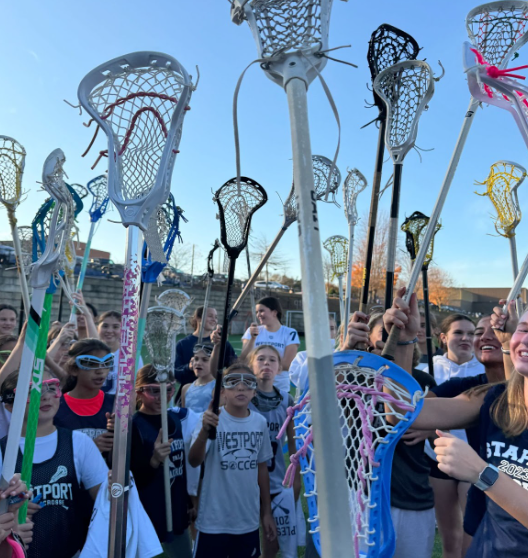For Alexandra Wiener ’12, a simple misunderstanding threw her onto the chessboard and into position for checkmate. Soon, she will take the status as king as she knocks unlucky pawns out of her way to the throne.
When she was in third grade, Wiener’s grandparents gave her a giant chess rug complete with beanbag pieces that she loved to play with. Her mom mistook her enjoyment for a desire to learn the game of chess. She immediately enrolled Wiener in chess classes at Norwalk Community College.
“I wasn’t sure what to expect,” said Wiener. “Although I was with kids who were the same age, many of them were strong players. But, I soon came to enjoy being challenged by players whose ability was greater than mine.”
To Wiener’s surprise, she picked up the game easily. Her instructor, Alex Eydelman, advised her to enter tournaments to further improve her skills.
At age 9, Wiener participated in her first tournament on May 19, 2002 at the 11th ACTA chess tournament. She won three out of her five games.
“When I was younger it was very hard to be one of the only girls at a chess tournament. I was initially very shy and intimidated by a room of all males,” said Wiener. “But as I got older, I realized that being a female chess player made me unique. Overcoming my discomfort with the all-male environment at chess competitions greatly increased my self-confidence.”
As Wiener continued to grow stronger as a player, she sought out the assistance of a more advanced coach. She said she found brilliance and wisdom in one of the highest-ranked chess players of the nation, Sergey Kudrin.
Kudrin has been a chess coach for more than 15 years and decided to take Wiener under his wing. “I try to help her understand that she can always make a move in chess, but she can never give up,” said Kudrin. “That’s one of the lessons of life. If it is not a good move, it’s not the end of the world. She just has to continue with what she has, and deal with it.”
Kudrin coaches Wiener at least once a week for two hours. For the most part, he teaches her strategies to start and end the game.
“Every time I play, I always use the same first move,” said Wiener. “My opponents have unlimited options to play in response. Kudrin helps me prepare for the most common moves, and we run through each scenario whenever we practice.” To Wiener, using the same opening move is a necessary tactic, otherwise it is impossible to prepare for games.
To date, Wiener has competed in 165 events. Her most significant tournaments include the 2005 National K-12 Championship, the 35th Annual World Open, and the 38th Annual World Open. She gained a new title from each, rising from 4th Category Title to 2nd Category Title. These are some of the national titles that are given by the United States Chess Federation to represent a player’s rating. In addition, she is currently ranked 40th in the nation for women under 21 in the United States and has been the top female under 18-years-old in the state of Connecticut for the last six years. She has won the 2010 National Girls Open Award and was awarded a scholarship to the UConn engineering program from the Connecticut State Chess Association K-12 Open Championship.
“She is really focused and obviously serious about what she’s doing,” said Linda Diaz, one of Wiener’s competitors from New York. “She is not too competitive that if she loses she goes crazy. Everyone gets upset when they lose, but she’s a really good sport.”
Wiener describes her chess experience as relaxing. The quiet tournament hall provides a five-hour escape from the hustle and bustle of reality. The long games have enhanced her patience, which is reflected in her playing style. She tends to play positional chess, which means waiting and looking for small weaknesses in her opponent’s positions, rather than attacking.
Wiener also likes to challenge herself. Instead of gaining meaningless wins by playing against opponents with lower rankings, Wiener enjoys competing against stronger opponents. She finds it more beneficial because it results in better games and self-improvement.
The United States Chess Federation classifies chess players based on their ranking. The highest classification is Senior Master, which is given to players with a ranking of 2400 or higher. This year, Wiener is trying to increase her ranking to 2000, which would promote her to an Expert player. Currently, with her ranking of 1835, she is considered a Class A player.
When Wiener is not a competitor in chess tournaments, she is a volunteer teacher at the Fairfield County Chess Club in Norwalk. She also started a scholarship program for inner-city kids in Bridgeport. She donated her tournament winnings to purchase 20 chess sets for the program. She exerts as much effort as she can to not only improve her own chess skills, but to develop others’ skills as well, because she believes the benefits of chess can truly change people’s lives.
“Chess has given me a different perspective on things in general,” said Wiener. “It has no boundaries on age, gender, race or anything like that. I have played five-year-olds that are amazing and literally have beaten me. I have played against people who don’t speak the same language as me. The coolest part about it is that it just doesn’t matter.”



















































